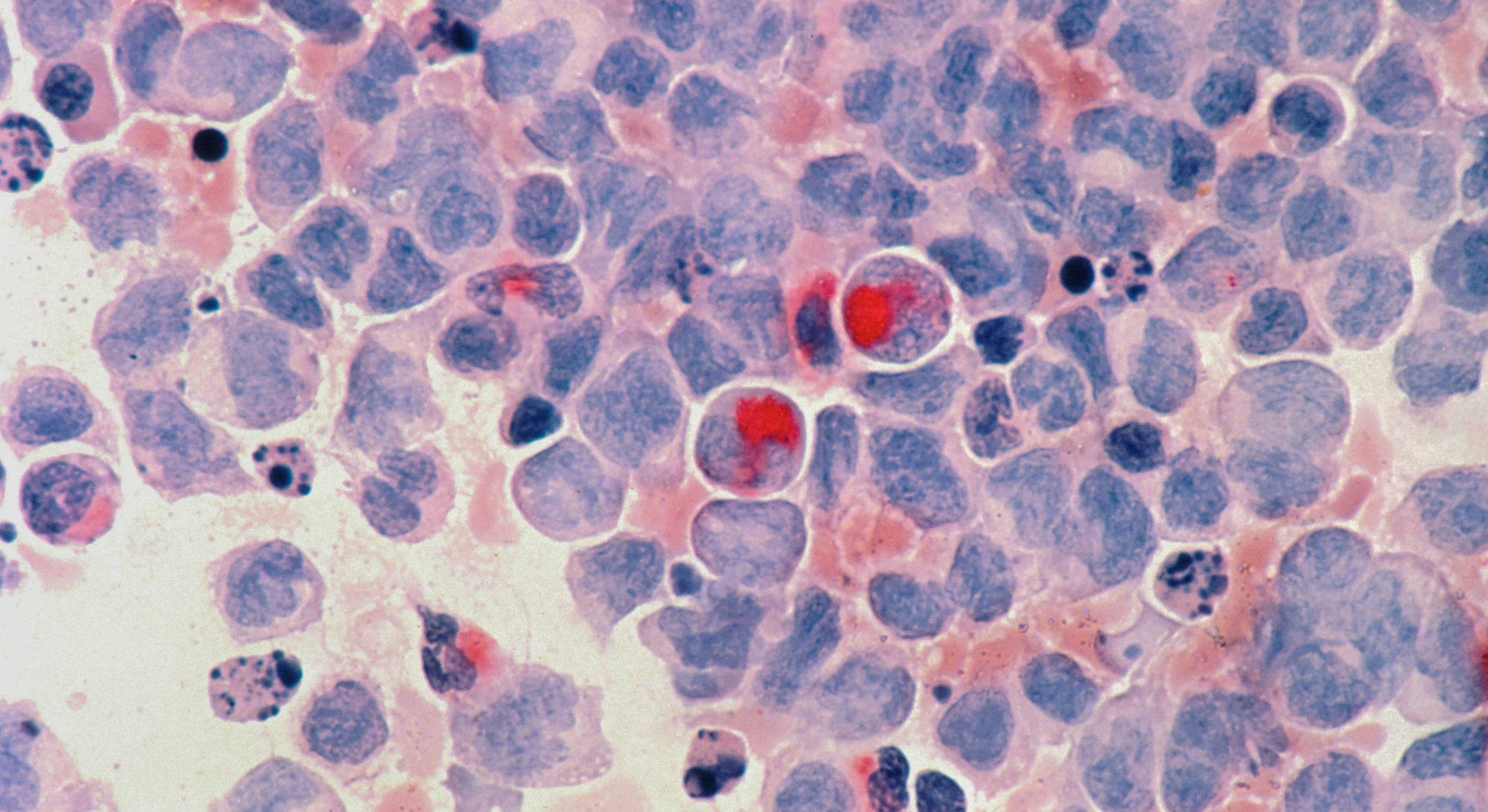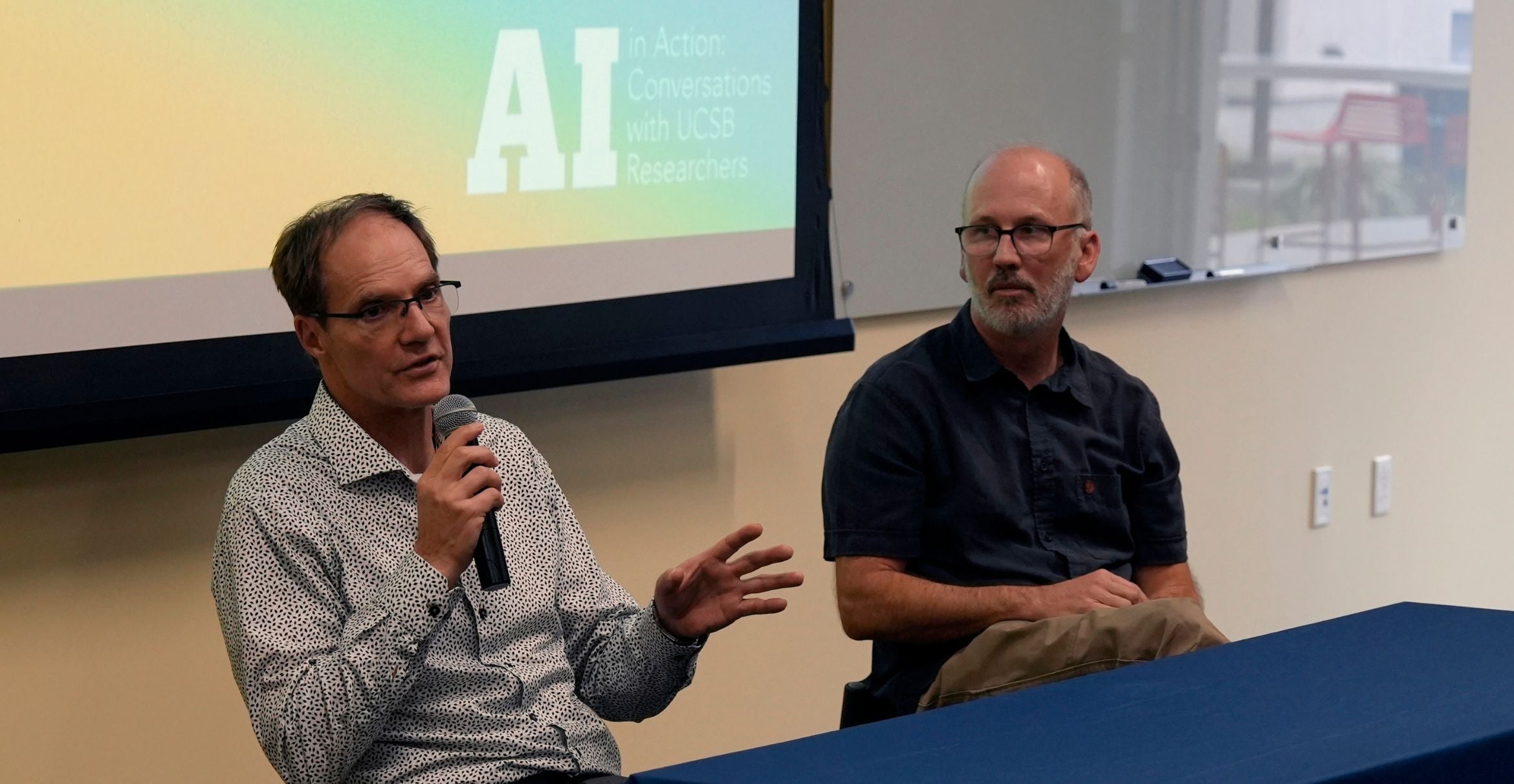UC Santa Barbara will receive $2.5 million of a $20 million, multi-institution grant for vision research. The research will focus on macular degeneration, the major cause of visual impairment in the elderly. The grant, from the California Institute for Regenerative Medicine (CIRM) and the UK Medical Research Council.
(MRC), will cover preclinical tests utilizing human embryonic stem cells, as part of an effort to get federal approval for clinical trials. CIRM will provide $15.9 million for work in California, and the MRC will add $4.1 million to fund collaborative work in London.
"UCSB scientists in the Center for Stem Cell Biology and Engineering and the Center for the Study of Macular Degeneration are excited to provide the basic research that will allow translation of stem cell research to the clinic," said Dennis Clegg, professor in UCSB's Department of Molecular, Cellular and Developmental Biology and Co-Director of the Stem Cell Center, and a co-principal investigator on the grant. Lincoln Johnson, director of the Center for the Study of Macular Degeneration, is also an investigator on the team. The Center for Stem Cell Biology and Engineering and the Center for the Study of Macular Degeneration are both part of UCSB's Neuroscience Research Institute.
According to the scientists who will work on this project, it is estimated that by 2020, over 450,000 Californians will suffer from vision loss or blindness due to age-related macular degeneration (AMD) –– the most common cause of retinal degeneration diseases in the elderly. The scientists explain that AMD is a progressive disease of part of the retina, called the macula. The disease begins with distortion of central vision, and eventually leads to legal blindness.
A layer of cells at the back of the eye called the retinal pigment epithelium (RPE) provides support, protection, and nutrition to the light sensitive cells of the retina –– the photoreceptors, which consist of rods and cones. The dysfunction of these RPE cells plays a critical role in the loss of the photoreceptors and hence the blindness of age-related macular degeneration.
Recent advances in knowledge and technology of human embryonic stem cells bring new hope for the development of cell replacement treatment, according to the scientists. These cells are capable of unlimited self-replication, and can be directed to make RPE cells.
The scientists point out that the research group is composed of unique, multi-disciplinary members, who collectively have more than two decades of experience in efforts to restore sight to the blind, as well as retinal cell transplantation and stem cell research. They plan to use their expertise and infrastructure to show to the Food and Drug Administration (FDA) the success of preclinical tests using RPE derived from human embryonic stem cells to help restore vision. They believe this success will help efforts to get FDA approval to conduct clinical trials in patients who are at risk of vision loss due to age-related macular degeneration.
In their grant proposal, the scientists note that hundreds of thousands of Californians with age-related macular degeneration will be helped by this research. Additionally, the California economy will benefit from the work through potential reduced costs for health care and social welfare. They also envision that the research will lead to a new industry and many employment opportunities, as well as add to the revenue generated by the state of California. Research efforts will also lead to new university curricula in stem cells and regenerative medicine in California, and thus educate the workforce of the future.
The principal investigator on the grant is Mark Humayun of the Keck School of Medicine of the University of Southern California (USC). Besides USC and UCSB, other institutional team members are from The California Institute of Technology, the City of Hope Hospital, and University College London. Pete Coffey, a partner principal investigator with the University College London Institute of Ophthalmology, is also an adjunct professor with UCSB's Neuroscience Research Institute.
Issued: 10/28/2009; Updated: 10/29/2009
Related Links
UCSB Center for the Study of Macular Degeneration
UCSB Center for Stem Cell Biology and Engineering
California Institute for Regenerative Medicine
UK Medical Research Council



